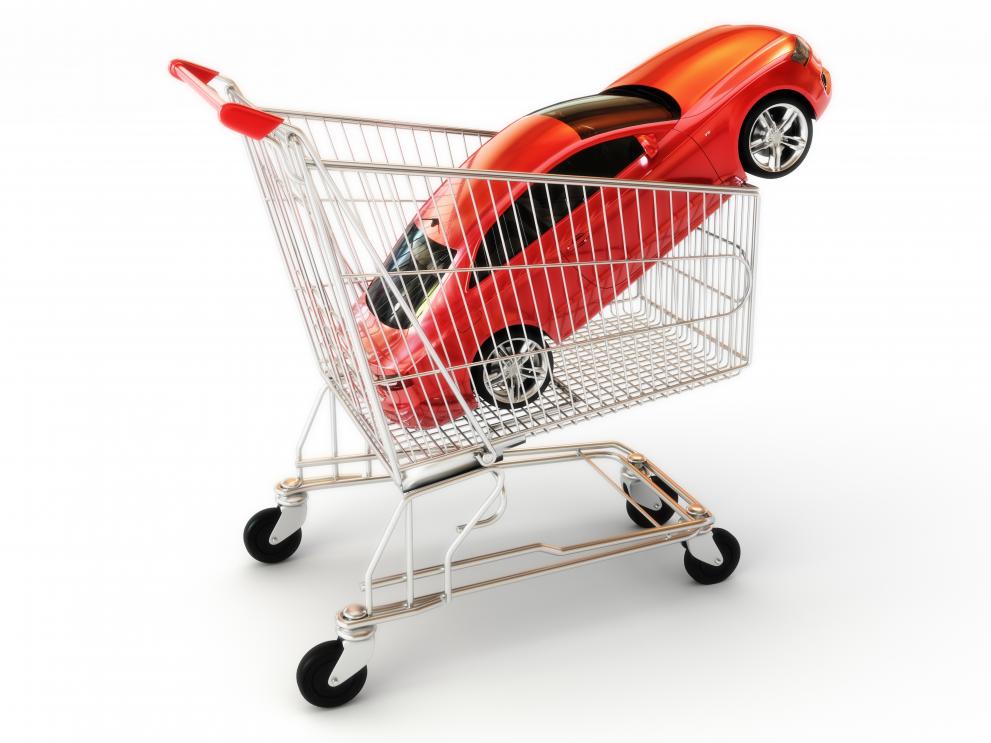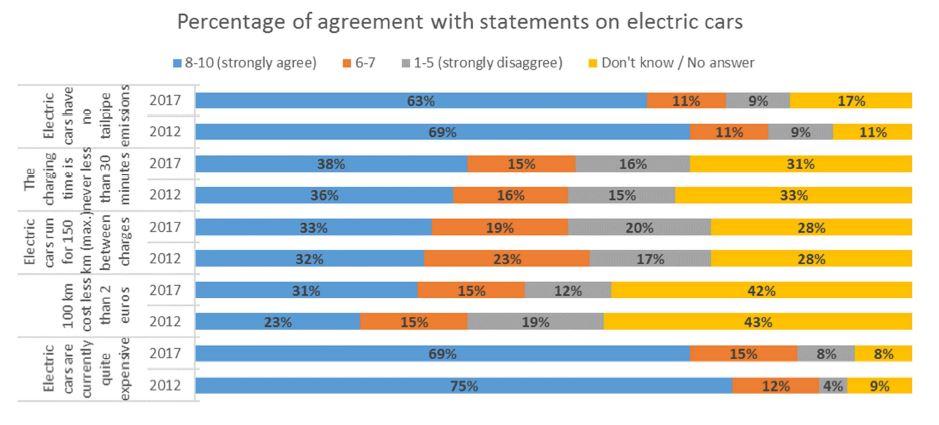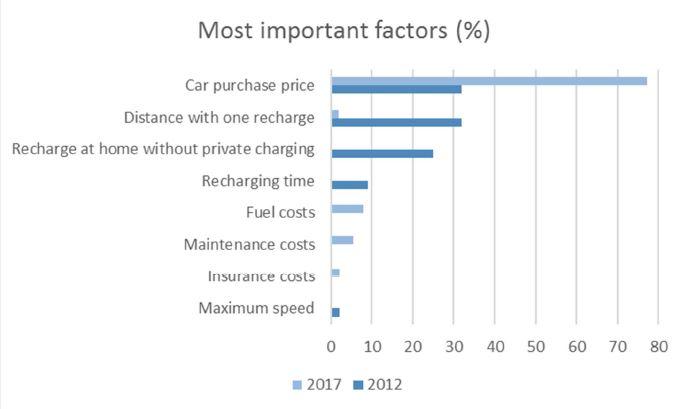
The purchase price continues to represent the major hurdle to widespread adoption of electric cars in the EU.
Lack of recharging infrastructure, range concerns and a limited choice of models were also cited as reasons for not buying an electric vehicle, in a recent survey by the JRC.
The transition to a low-carbon economy is a key political priority for the EU. To make this a reality, one of the ambitions is the widespread take-up of low- and zero-emission vehicles over the next decade.
The current share of electric cars in new vehicle sales in EU countries ranges from 0% to 6%. The notable exception in Europe is Norway, where electric vehicles account for 29% of the market.
Better insight into consumers' attitudes and preferences, as well as understanding the influence of car attributes such as range and recharging time on the attractiveness of electric cars, can help define related policies, such as needs for recharging infrastructure in the EU.
In order to quantify factors influencing people's car type choices in Europe, JRC researchers surveyed in June 2017 over 1,200 car drivers in six EU countries, (France, Germany, Italy, Poland, Spain and the UK) about their vehicle choices.
These countries together represent 78% of new car sales in the EU. The resulting study, Quantifying the factors influencing people’s car type choices in Europe, a follow up of a 2012 JRC report, tracks the evolution of the attitudes of car drivers towards various aspects of electro-mobility in the last five years.
Main findings
Almost half of the respondents have never considered an electric or fuel cell car as an option for their next car purchase in the stated choice experiments, even when they featured favourable characteristics.
This may lead to the conclusion that widespread concerns for the viability of zero-emission cars on European roads still remain an issue for many consumers.
Electric cars are still considered expensive, but less so than five years ago
While the purchase price continues to be identified as the most important factor for respondents when it comes to choosing a car, the proportion of the respondents strongly agreeing with the statement that electric cars are currently quite expensive, has decreased over the last five years from 75% to 69%.
This could be attributed to an improvement in the cost competitiveness of this technology in the last five years, together with the introduction of purchase subsidies (e.g. in Germany and Spain, in addition to already existing ones in France and the UK) that lowers their price tag.
Electric cars are believed to be cheaper to drive
The proportion of the surveyed drivers that strongly agree with the statement on relatively low operating costs of electric cars has increased over time.
Therefore, European drivers seem to now better appreciate the economic advantage of using electricity over conventional fuels in electric cars.
Consumers seem less aware of the environmental benefits of electric cars
Consumer awareness on the environmental benefits of electric cars (response to a statement “Electric cars have no tailpipe emissions”) compared to conventional cars seems to have worsened in the researched period.

What are top important factors when choosing a car?

The top factor was purchase price, which was chosen by 77% of respondents across all countries as their first choice. The priority of this factor was consistent across countries.
Further, fuel costs and maintenance costs become important in the second choices (not shown), followed by brand/manufacturer. Again, these patterns were quite consistent across countries, although more Polish respondents report maintenance costs to be important compared to fuel costs.
Maximum speed and, especially, recharging availability were identified as influencing factors in 2012 but not in the 2017 survey.
Background – EU policies
The Commission's proposal on CO2 standards post 2020 which combines targets for 2025 and 2030 with a technology-neutral incentive mechanism for zero- and low-emission vehicles will give a clear signal to the market to invest in clean vehicles.
Developing recharging infrastructure
In order to respond to consumer concerns, the Commission has proposed to update the EU’s legislation on energy efficiency in buildings in order to develop recharging infrastructure in our building stock.
The new provisions will accelerate the deployment of recharging points and ducting infrastructure in buildings’ car parks and thereby help the electrification of the transport sector and raise the share of renewables therein.
The Commission has also proposed an action plan targeting an accelerated deployment of recharging points accessible to the public in urban and suburban areas as well as along the major European roads.
Developing battery manufacturing
Furthermore, the EU encourages the establishment of a competitive, innovative and sustainable battery manufacturing and full value chain in the EU. This will ultimately support the production of battery powered electric vehicles.
Related Content
Details
- Publication date
- 15 May 2018
